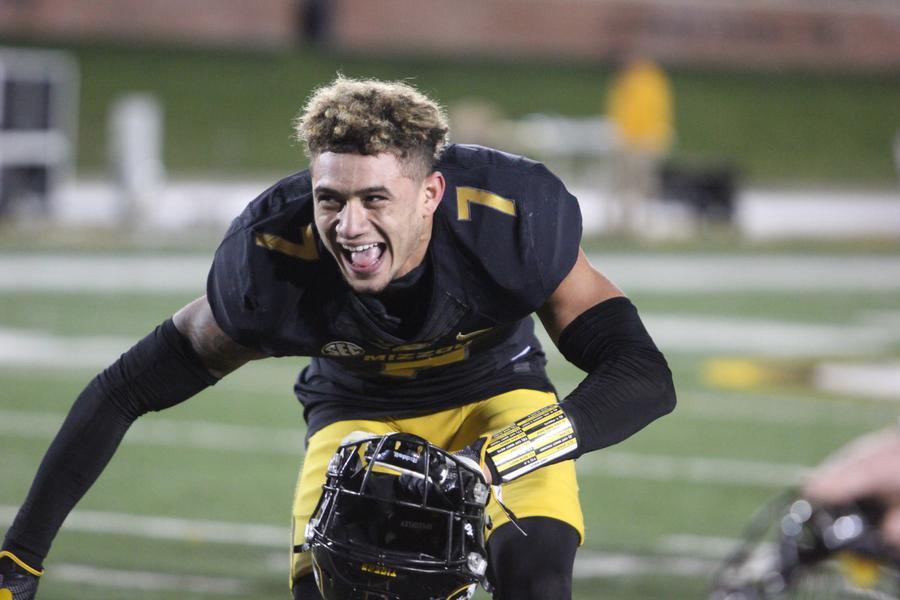
In a season filled with misery, Missouri’s 26-17 victory over Vanderbilt on Saturday was a bright spot for the team. Mizzou held on for the victory thanks to big days from sophomore quarterback Drew Lock and true freshman running back Damarea Crockett. Lock threw for 294 yards and two touchdowns while Crockett rushed for 154 yards and a score. Lock and Crockett leading the Tigers to wins is something fans are going to get used to.
Both Lock and Crockett are young and are set to be major contributors to what should be a productive offense a year from now. Crockett has been the major bright spot this season for the Tigers, emerging to lead the team in rushing; he has been by far the most impressive back for Mizzou this year. He shows burst-through holes and has sparked a rushing attack for the Tigers the last couple of weeks, giving the team a new dimension on offense.
Lock’s career in Columbia has been inconsistent, but Mizzou fans have to remember that Lock is a true sophomore, so mistakes are expected. The young quarterback shows promise, and possesses the arm talent to potentially be a top-level Southeastern Conference quarterback. With promise at the two most important positions on offense, Mizzou should be excited for the future on the offensive side of the ball. The problem? The new offense installed by first-year offensive coordinator Josh Heupel.
In his debut season in Columbia, Heupel has installed a fast-paced offense, causing the Tigers to jump 100 spots in pace, from the 118th-fastest offense in college football to the 18th-fastest. Heupel’s offense takes a lot of concepts from the Big 12, specifically Baylor; Missouri rarely huddles and runs plays extremely rapidly, with a lot of wide receiver screens and a spread formation.
With fast-paced spread offenses still extremely popular in college football, why is Heupel’s a problem? The primary issue is something some Mizzou fans have nicknamed the “Heupel drive.” A “Heupel drive” is a drive in which Mizzou quickly goes three-and-out, running almost no time off the clock due to its no-huddle style. This has caused Mizzou to be dominated in time of possession in every single one of its SEC games this season. For a school which prides itself on defense and being able to keep games low scoring, the sheer amount of snaps the Mizzou defense has to play per game is an issue. Losing the time of possession battle so badly really tests the stamina of Mizzou defenders and is a contributing factor to the defense’s disappointing season this year.
A tired defense usually allows more points, causing increased pressure on Drew Lock to make riskier throws to catch up. It also leads to the offense’s having to rely too much on the pass and since Crockett has become the best player on Mizzou’s offense, this is an issue.
Crockett needs more carries, and the best way to maximize his talent is for Mizzou to transition back to a more classic offense. A slower, more traditional offense with fewer plays and more snaps under center will make the running game more effective, while also making throws for Drew Lock simpler. Lock thrives when he doesn’t have to make as many difficult decisions, and a traditional offense with a focused running attack will allow that.
Mizzou was very successful its first few seasons in the SEC by relying on its incredible defense and moving the ball methodically. The SEC is a challenging conference; most teams have better and more talented athletes than Mizzou, and speeding up the pace of the game and running more seems to be counterintuitive. Mizzou needs to keep its defense off the field and rely on Crockett more next season by changing its offense. If Mizzou becomes successful in the SEC again, it will be because of good decision-making by Lock, a ground-and-pound offense that controls the clock and the return of an elite defense. That’s a formula proven successful in Columbia: now it’s up to head coach Barry Odom to follow it.